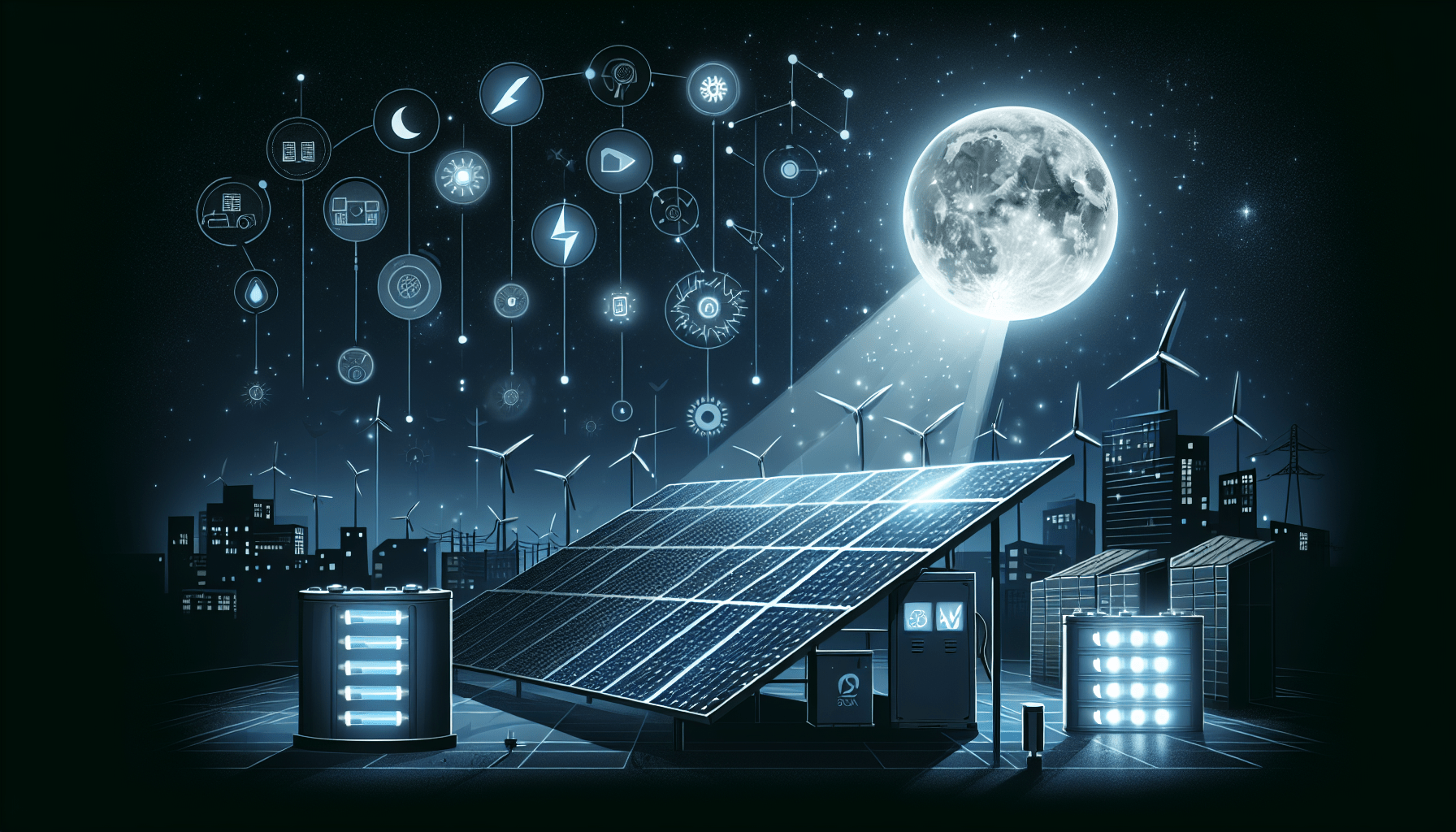Curiosity piques as the sun sets and darkness engulfs the world, leaving us wondering: how do solar panels continue generating electricity at night? The concept of harnessing the sun’s energy for power seems implausible once the star of our solar system disappears from the sky. However, this article will shed light on the ingenious mechanism behind solar panels and unveil the mysterious phenomenon that allows them to work even during the darkest hours.

Solar panels and sunlight
Solar panels, as the name suggests, rely on sunlight to generate electricity. Sunlight is the main source of energy that powers solar panels and allows them to convert sunlight into usable electricity. The panels are made up of photovoltaic cells that absorb sunlight and convert it into direct current (DC) electricity. This process of converting sunlight into electricity is known as the photovoltaic effect. In essence, without sunlight, solar panels cannot produce the electricity that is needed to power our homes and businesses.
No sunlight at night
While solar panels are incredibly effective during the day when the sun is shining bright, they face a significant challenge at night – the absence of sunlight. As the Earth rotates, the sun sets, and darkness descends, solar panels are deprived of the light they need to generate electricity. This lack of sunlight poses a considerable obstacle for solar panel systems that are solely dependent on solar energy.

Power storage
To overcome the challenge posed by the absence of sunlight at night, solar panels require a reliable method of power storage. Without a means to store excess energy generated during the day, solar panels would not be able to function during the night or when sunlight is limited. Power storage is essential to bridge the gap between the generation of solar energy and the times when it is needed most.
Batteries as energy storage
One of the most common and practical solutions for power storage in solar panel systems is the use of batteries. Batteries are designed to store excess solar energy that is generated during the day and make it available for use at night or during periods of low sunlight. This energy storage capacity of batteries is particularly crucial for off-grid solar systems, where reliance on external sources of electricity is limited or non-existent.

Battery charging during daylight
During the daytime when solar panels are exposed to sunlight and actively generating electricity, they also charge the batteries simultaneously. The excess energy that is not immediately consumed by the connected electrical devices is diverted to charge the batteries. This way, solar panels efficiently harness and store the surplus energy for use later during the night or when the demand for electricity exceeds the generating capacity.
Inverter and conversion of energy
When it comes to utilizing the stored energy from solar panels, an inverter plays a vital role. The direct current (DC) electricity produced by solar panels needs to be converted into alternating current (AC) electricity, which is the type of electricity commonly used to power most electrical devices. Inverters are responsible for this conversion process, allowing the energy stored in the batteries to be readily compatible with the electrical devices used at night.

Backup power from electrical grid
In some cases, solar panel owners may find themselves in situations where the stored energy from their panels is insufficient to meet their electricity needs during the night or periods of high demand. During such times, solar panel systems can seamlessly switch to using the electrical grid as a backup power source. This ensures a continuous supply of electricity, even when solar panels are unable to generate enough power.
Net metering
Net metering is a process that allows solar panel owners to receive credit for the excess electricity they generate during the day and feed back into the electrical grid. The surplus electricity can then be used during the night or when the sun is not shining. This practice enables solar panel owners to benefit from the energy they contribute to the grid, in turn reducing their reliance on the electrical grid at times when solar energy may be limited.
Solar batteries and their benefits
Solar batteries offer numerous advantages when it comes to energy storage for solar panel systems. By incorporating solar batteries into a solar panel setup, individuals and businesses can increase their energy self-sufficiency, reducing their dependence on the electrical grid. This not only provides greater control over energy consumption but also helps to minimize reliance on fossil fuels, leading to a greener and more sustainable future.
Efficiency and capacity of solar batteries
The efficiency and capacity of solar batteries are crucial factors that dictate the amount of energy available during the night or when sunlight is limited. Higher efficiency batteries can store and release a greater amount of energy, ensuring a more reliable power supply. Additionally, the capacity of solar batteries determines how long they can sustain the electricity demand before needing recharging. It is vital to consider these aspects when selecting and designing a solar panel system to maximize energy availability during non-sunlit hours.
In conclusion, solar panels play a significant role in generating clean and sustainable electricity by harnessing the power of sunlight. However, their ability to function effectively at night or during periods of limited sunlight relies on efficient power storage systems such as batteries. By integrating batteries into solar panel setups, individuals and businesses can ensure a continuous power supply, reduce their reliance on the electrical grid, and contribute to a cleaner and more sustainable future.




